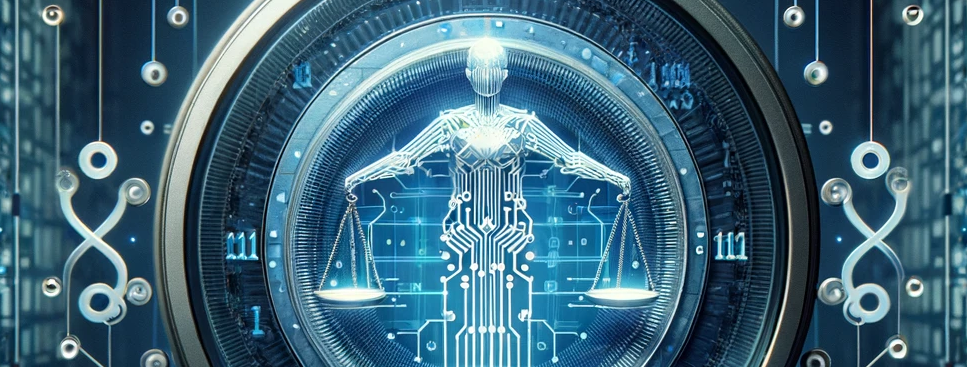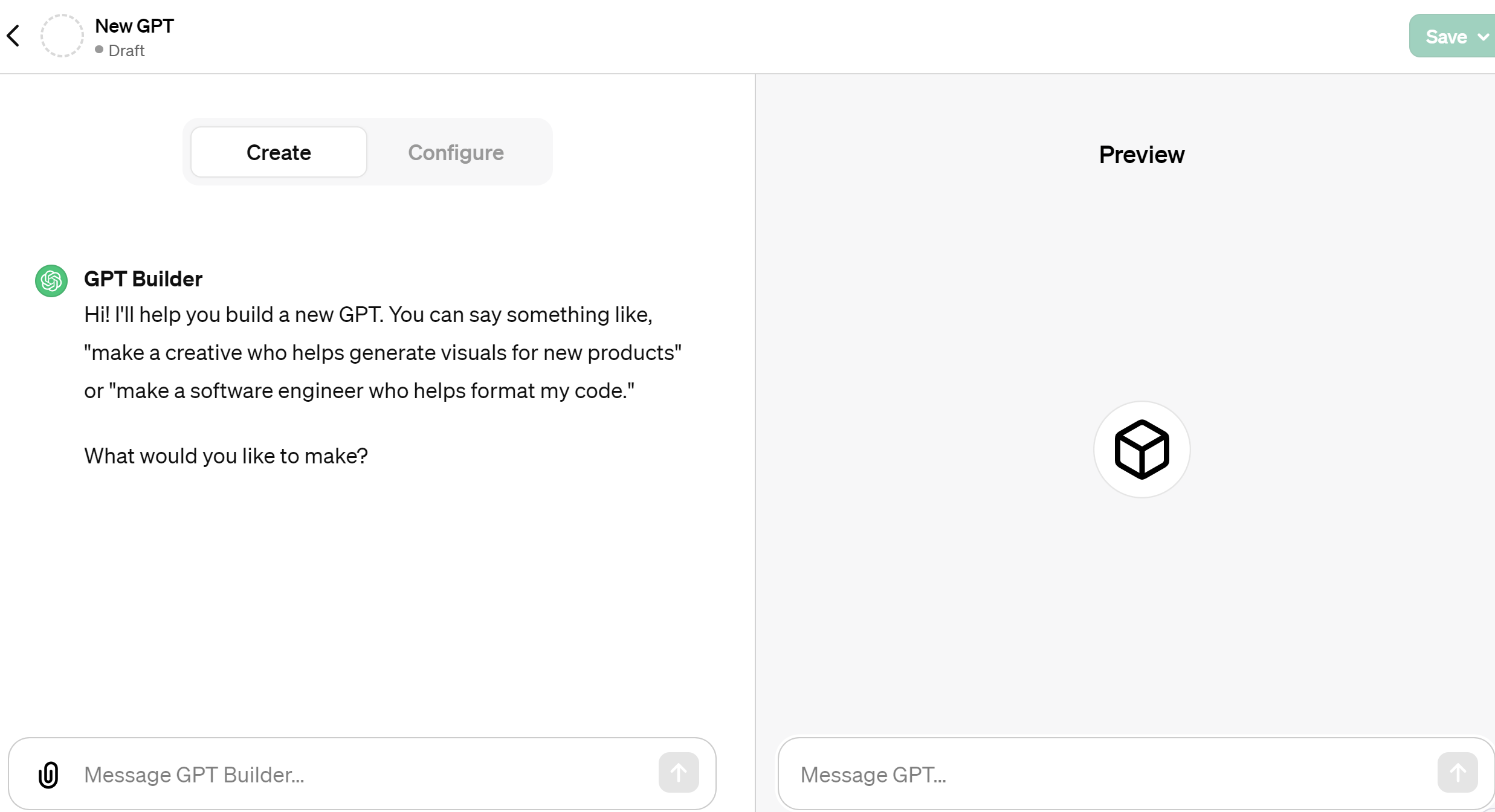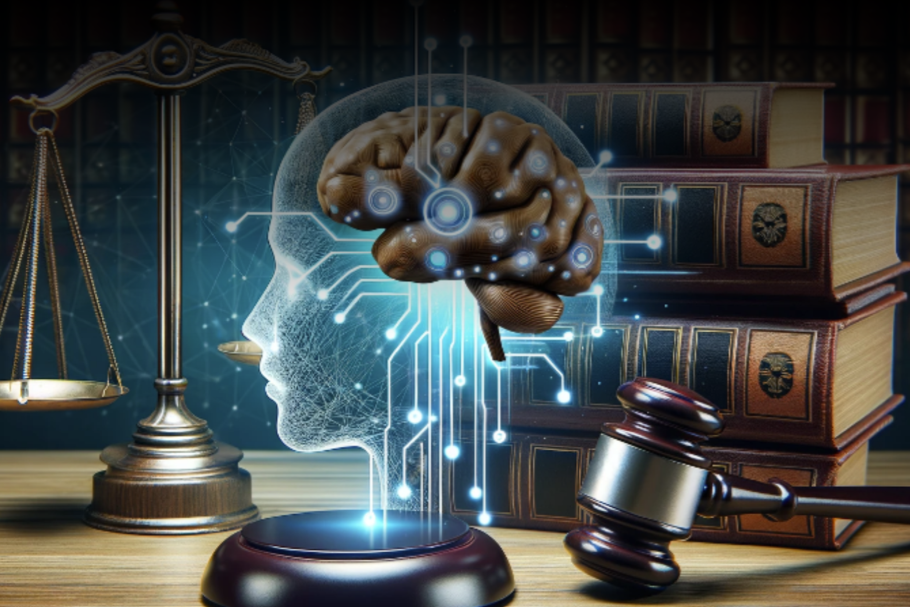In what will hopefully be an extension of our AI for Law Firms series, at the weekend I tried to set up a few legal GPTs and it got me thinking that not only is there limited information on how to make a GPT, let alone a legal sector one, but there is also little information available on how to do so legally.
What Legal GPTs Did I Make?
First, just to let you see what legal GPTs I tried making –
Free Legal Advice – “Guides to free legal advice providers. Always consult a lawyer for legal advice.” Behind the scenes, there is a list of 100-150 free legal advice providers from the UK, US, Australia and Canada to begin with that I’ve collated over the years that should hopefully make this more useful for people trialling it.
Find a Lawyer – “Assists in finding suitable lawyers based on user needs. Disclaimer – always do your own extra research”; As you’ll see, it suggests prompts such as ‘How do I find a lawyer for a business issue?’, ‘I need a divorce lawyer, where should I look?’, What’s the best way to find a legal expert for my case?’ etc
And a couple of others – may reveal more should they become more popular in due course.
Legal GPTs from Around the Web
From around the web, many GPTs, including legal sector GPTs, are now being created daily. For instance, Richard Healey has also produced one called ‘Money Mentor’ in what he describes as ‘Launching the World’s First UK-Specific Debt Guidance AI GPT’, and Greg Lambert has made one called ‘The Geek in Review Bot’. There have also been a couple of ‘Legal Eagle’ ones floating around on LinkedIn at the weekend. And Alex Herrity, Director of Legal Solutions at adidas has created an excellent and very sarcastic new legal tech product critique GPT here.
Will aim to update this list – any recommendations for new great ones you come across are gratefully received – best to message on LinkedIn here.
GPTs Reshaping our Interaction with Digital Technologies
Generative Pre-trained Transformers (GPTs) are reshaping our interaction with digital technologies, offering innovative solutions across various sectors. While the potential is vast, so are the legal and ethical responsibilities.
With all of this there is a massive opportunity for lawyers and legal professionals to train Chat GPT based on correct legal information relevant to certain jurisdictions and governing laws. Leading commentator Brian Inkster, on his The Time Blawg, speaks of the ‘Hallucination’ effect that we need to avoid with all of these systems. At the moment ChatGPT reminds us, beneath the message section, that “ChatGPT can make mistakes. Consider checking important information” so at least that disclaimer is always in place but we need to aim to advance to a place where everything is closer to 100% accurate all the time.
This blog serves as an initial 5-minute guide to how to set up a GPT with initial thoughts on how to navigate the complexities of legally creating and deploying GPT, helping to make sure your innovations are both groundbreaking and compliant (without guaranteeing that in any way, as this is not official advice).
How to Make a GPT – Set Up Guide
To make a GPT with Chat-GPT,
- first you’ll need to upgrade to the new OpenAI GPT-4 system here – this is around $20 per month in the US / £19.99 per month in the UK
- second visit the new GPT Builder here
- follow the instructions that ChatGPT’s GPT Builder then gives you
- it starts with their message as follows:- GPT Builder; Hi! I’ll help you build a new GPT. You can say something like, “make a creative who helps generate visuals for new products” or “make a software engineer who helps format my code.”; What would you like to make?
- As part of this it will probably design an icon for your GPT and give it a title and introduction
- Then you can test it
- And when happy you can publish it, link to it and share it
- If it’s good enough it may well then end up in the GPT Store that Open AI publishes in due course.
This screenshot shows what the GPT Builder says to you on logging in and visiting the GPT Builder at point 2 above:-
How to Stay on The Right Side of the Law when Building a GPT
While this isn’t AI-tech legal advice (I’m no longer a practising lawyer), there are four main things you should bear in mind when making a GPT:-
- Don’t upload sensitive or confidential information as it may become publicly available. Indeed if you ask a GPT to reveal how it was created it probably will – at least at the moment (thanks to Leon Furze, referred to below, for the insights there)
- Make sure you have the necessary rights to publish the information eg copyright. Many people will probably be copying and pasting millions of words without the proper permissions. Make sure you stay on the right side of the (current) law here.
- Consider adding a disclaimer within the intro text saying that people shouldn’t rely on the advice given by the GPT.
- Refer to OpenAI’s user terms here. I asked ChatGPT-4 to summarise these – here’s what it said (again not legal advice but may be interesting to read)
“OpenAI’s Terms of Use, updated on March 14, 2023, outline guidelines for using their services, including APIs, software, and tools. Users must be at least 13 years old, or have parental consent if under 18. The terms grant non-exclusive rights to use OpenAI’s services, stipulating compliance with laws and policies. Users are prohibited from actions like reverse engineering, creating competing models, or misrepresenting AI-generated output. Content provided to the services remains the user’s property, but OpenAI may use it for service improvement, subject to opt-out options. OpenAI emphasizes the importance of reviewing the accuracy of AI-generated content, given the probabilistic nature of machine learning. Fees for services are outlined, along with confidentiality and security responsibilities. The terms also cover dispute resolution, including mandatory arbitration and waiver of class actions, and specify that the services should not be used for illegal purposes or exported to embargoed countries or restricted parties. Users are advised to maintain accurate account information and are responsible for compliance with these terms.”
A Foundational Understanding of GPT and Its Applications
What are GPTs?
GPTs are sophisticated AI models that are specifically engineered to produce text that resembles that of humans. They produce and predict text sequences based on training with large datasets, which renders them applicable to a wide range of applications.
Implementations Throughout Industries
GPTs are utilised in a multitude of domains, including motivating chatbots in customer service and generating innovative content. Their indispensable role in domains such as programming, personalised education, and automated journalism demonstrates the necessity for a nuanced approach to their legal advancement.
Legal Aspects to Consider in the Development of GPT: Addressing Data Privacy and Intellectual Property Compliance
One must consider intellectual property rights associated with the training data and the model itself when developing a GPT. Data privacy legislation, including the CCPA in California and the GDPR in Europe, mandates rigorous protocols to safeguard user data and obtain consent.
AI Regulations and Ethics
The observance of ethical AI principles is equally imperative to legal compliance. This entails safeguarding against the perpetuation of biases and infringement upon individual rights by the GPT.
Further Legal Step-by-Step Instructions for Developing a GPT
The following is a further legal step by step guide to what you should be thinking about when developing a GPT – again not legal advice but may be useful for you to consider when doing so:-
1. Planning and Research: Preparing the Foundation
Conduct exhaustive research on legislation and ethical guidelines pertaining to artificial intelligence. Determine prospective legal obstacles that are unique to the implementation of your GPT and generate proactive resolutions.
2. The Acquisition and Application of Data: Legitimate and Ethical Considerations
Obtain information in a lawful manner, ensuring that all copyrights are honoured. User data should be anonymised and stringent data protection measures implemented in order to maintain privacy standards.
3. The GPT Development Process: Ethical AI Practices
Engage in the ethical development of AI. This requires conducting routine bias audits of the GPT and ensuring that its outputs do not distribute harmful or discriminatory material.
4. Deployment and Testing: Compliance in Practice
Beta testing should be conducted with a strict adherence to legal obligations, with particular attention to user consent and data security. Employ GPT in a configuration consistent with legal requirements and industry standards.
5. Ongoing Vigilance and Adherence: Maintaining Ahead
It is imperative to adopt a proactive stance when it comes to revising practices to align with the ever-changing laws and regulations pertaining to artificial intelligence. Consistently monitor the operation and application of the GPT in order to guarantee continuous adherence to ethical standards.
Examining Legal Obstacles in GPT: Insights from the Finest
Examine how major technology companies navigate the legal landscape of AI. Critical lessons can be gleaned from an examination of their strategies for striking a balance between innovation and legal compliance.
Expert Opinion on Legal Compliance Best Practices
Consult with legal professionals who are specialists in technology and AI. Stay updated on the most recent advancements in AI legislation and ethical considerations, adjusting your approaches to development and deployment in response.
The Importance of Ethical Innovation in the Age of AI
The lawful development of a GPT represents not only a regulatory requirement, but also a dedication to ethical innovation. By providing you with the essential information and approaches outlined in this guide, your GPT projects will be conducted in a lawful and ethically sound manner.
Top AI Influencers to Follow on LinkedIn
The following are some of the top AI influencers on LinkedIn, known for their contributions to the field of artificial intelligence. These influencers include academics, entrepreneurs, researchers, and practitioners who have significantly impacted AI through their work and insights although it’s worth noting that the list of AI experts on LinkedIn appears to be growing by the day:-
- Leon Furze – “Consultant | Author | PhD Candidate | Director @ Young Change Agents | Director @ Reframing Autism”
- Andrew Ng: Recognized worldwide as a leader in AI, Andrew Ng is the founder of DeepLearning.AI, CEO of Landing AI, and General Partner at AI Fund. He co-founded and led Google Brain and was the former Chief Scientist at Baidu, significantly contributing to AI development.
- Bernard Marr: A successful social media and AI influencer at the intersection of business and technology, Marr is an internationally best-selling author, keynote speaker, futurist, and strategic advisor.
- Fei-Fei Li: An American computer scientist, Fei-Fei Li is known for her work in AI research, particularly in establishing ImageNet. She is a Professor at Stanford University and Co-Director of Stanford’s Human-Centered AI Institute.
- Ronald van Loon: A leading AI influencer in data and analytics, automation, and the future economy, van Loon is the CEO of Intelligent World and serves as an Advisory Board Member & course advisor for Simplilearn.
- Kirk Borne: Renowned data scientist and astrophysicist, Borne is the Principal Data Scientist at Booz Allen Hamilton and a former professor at George Mason University.
- Lex Fridman: A Russian-American computer scientist and podcaster known for hosting the Lex Fridman Podcast.
- Karen Hao: An award-winning AI journalist, Hao writes for The Atlantic on the intersection of AI with society.
- Andy Fitze: A serial entrepreneur, digital strategist, AI influencer, and digital transformation advisor for startups and enterprise boards.
- Allie Miller: Known for her roles as a top AI leader, advisor, and investor, Miller has significant experience in machine learning business development and product management at AWS and IBM.
- Aishwarya Srinivasan: A data scientist and AI influencer, Srinivasan shares news and innovations in AI and has worked with companies like Google Cloud AI Services and IBM Data & AI.
- Lara Sophie Bothur: @ | LinkedIn Top Voice 2023 in Tech | 1st Corporate Influencer GER | TOP 20 Fem LinkedIn Influencer | Tech Influencer, Speaker & Moderator | TECH FOR GOOD!
Get in touch
Looking forward to hearing from you if you have any further feedback or comments on the discussion – connect with me on LinkedIn here and see our further information on some of the best AI for law firms here.




